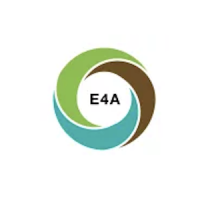
Liberty and Agency in the Anthropocene
The E4A Ethics Group will be hosting a symposium on liberty and agency in the Anthropocene.
Submissions for the symposium will be up for consideration in an edited collection.
Date: November 12 – 13
Location: McGill, Montreal
For more information contact:
Katie Kish at kaitlin.kish@uwaterloo.ca
Chris Orr at christopher.orr@mail.mcgill.ca
For more details on the subject and to submit an abstract for consideration please read the below abstract for the book and symposium.
Download a pdf of the extended call for abstracts here.
Following the abstract you will find the form for submitting your abstract.
Timeline:
Abstracts due: May 1
Extended deadline: May 14
Notice of Decision: May 30
Drafts Due: September 1
Workshop: November 12-13
Final Chapter Due: December 1
We are in the process of applying for funding to support travel and participant in the symposium.
At this time, travel funding is not guaranteed.
Abstract
The concept of liberty perhaps provides the best lens through which to explore the links, and reveal deep tensions, between our global civilization and its ecological prospects. Freedom (here used synonymously with liberty) is a central normative concept for modern societies and has become inextricably linked to post-Enlightenment understandings of social progress and societal virtue. The predominant framework of ethical discourse is the analytic ethics of liberal rationalism. Liberal rationalism starts from a foundational assumption of the individual as a moral agent – sovereign, rational, and objective. This notion of agency is ahistorical and often projected unconsciously onto inappropriate historical and societal contexts. It is also anti-political in so far as its values are abstract, universalizing, and treated as non-negotiable. This ethical system is an integral part of liberal democratic society with an intellectual heritage of Enlightenment rationalism and an unprecedented degree of social complexity and individualization. At the same time, operating in a neo-capitalist global system, modern economies are defined by contracts and exchanges between individuals (or corporations accorded the legal status of individuals). As a political project liberalism has led to great changes – and in many instances enormous improvements – in social and material conditions.
But at the same time, modern liberty has accompanied or piggy-backed on transformations in human-nature relationships that characterize the Anthropocene: increasing extraction of resources, combustion of fossil fuels, industrialization, technological development, ecological destruction, and mass production linked to global consumerism. Ironically, these transformations have led to concatenating environmental problems that seem likely to undermine both the ecological and economic preconditions for liberal values and institutions. For instance, climate change, extreme weather events, desertification, sea level rise, and biodiversity loss among other factors are already engendering famine, climate refugees, geo-political insecurity and war. It is difficult to envision a world in which these changes do not lead to the receding of rights and freedoms for large portions of the global population. Perhaps less obviously, there is also a real danger that the social and ecological conditions of the Anthropocene may present an existential challenge to the institutions and values of liberal individualism in the advanced, complex economies of the global North.
The dominant conception of individual liberty and the liberal institutions that emerged in the wake of capitalist modernization are ill suited and perhaps antithetical to a human-Earth relationship that is ecologically sustainable over the long term. With the onset of the Anthropocene, some argue that our cherished and taken for granted understanding of liberty is part of the ecological problem and needs to be discarded. For others, the notional sanctity of the individual is the most precious legacy of the Judeo-Christian and Enlightenment traditions. As such, they argue that, despite these tensions, we should do everything possible to preserve the ideational and institutional foundations of moral individualism. In either case, any paradigm shift towards a civilization of the ‘Long Now’ and a pattern of living less at odds with the biosphere, would seem to require the conventional view of liberty to be dramatically reinterpreted or discarded.
Adopting the time horizons of the Anthropocene, this special issue aims to provide an authoritative and deeply critical examination of the concept liberty as it relates to environmental politics and ethics over the longue duree. Contributions will explore this problem from a variety of directions to shed light on: (1) wicked dilemmas and tensions of liberty in the Anthropocene; (2) the relation between current conceptions of liberty, agency and environmental politics; (3) ethical or normative [re]visions of liberty; and (4) potential prefigurative strategies, conceptions, or configurations of liberty, agency, and ontology to facilitate alternative modernities and more ecologically benign ways of living on the Earth.



